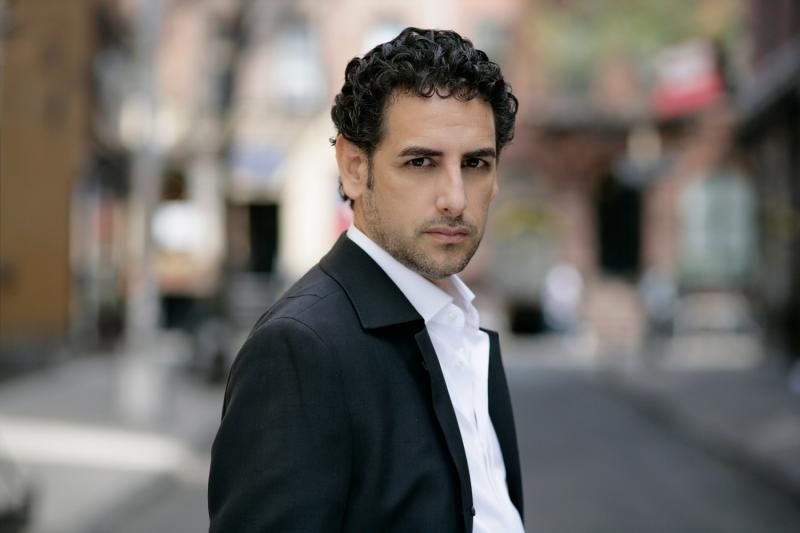Juan Diego Flórez, Vincenzo Scalera, Symphony Hall, Birmingham | reviews, news & interviews
Juan Diego Flórez, Vincenzo Scalera, Symphony Hall, Birmingham
Juan Diego Flórez, Vincenzo Scalera, Symphony Hall, Birmingham
Quiet smiles outweigh high Cs in a recital of two distinct halves

“Who says Mozart is not like Rossini?” remarked Juan Diego Flórez, about a quarter of an hour into his debut recital at Symphony Hall.
There was no question of them sounding unforced; perhaps, no possibility. Phrasing went by the board as one after another they flashed out. The sensation, for anyone trying to make dramatic sense of it all, was like being tailgated by a Ferrari whose driver keeps flicking their headlights onto full beam: startling, dazzling, faintly intimidating. Musical? You’re missing the point. Plus, the audience loved it and they were out in force (never a given for a song recital in Birmingham). Flórez’s magnetism precedes him, and in his blue suit, black bow tie and patent leather shoes, he cut an engaging figure – leaning against the piano, clasping one arm against his chest, and apologising politely to the front rows as he popped off stage for another sip of water.
A blaze of bel canto fireworks brought the stalls to their feetFinding a persuasive musical vehicle for all that charm was a problem that eluded this concert at least as far as the interval. The Symphony Hall acoustic makes pretty much anything sound good, but it can’t generate the drawing-room intimacy that Rossini’s late salon songs (for all their tendency to punch for the stars in the final verse) really need. And without the cushioning of a full orchestra, display arias from Mozart’s Die Entführung and Rossini’s Semiramide didn’t land easily on the ear. Scalera summoned up orchestral textures with considerable flair, but not enough to conceal occasional wooliness and a certain coarseness of tone in Flórez’s passagework. Flórez's high notes are a phenomenon, no question. They just didn't sound very nice.
With the second half, the emphasis changed from bel canto to verismo, and that worked quite a lot better. A trio of parlour songs by Leoncavallo dispensed almost completely with vocal fireworks: Flórez was able to shape long, curving musical lines and drape his glowing middle register sensuously over the words. Combined with Scalera’s limpid, eloquent pianism this felt like real chamber music. And counter-intuitively enough, the absence of an orchestra seemed to matter noticeably less in extracts from Puccini’s Gianni Schicchi (Rinuccio’s great hymn to the city of Florence) and La Bohème ("Che gelida manina") and Massenet’s Werther ("Pourquoi me réveiller"), as Flórez slipped into character, revealing the attractive tonal shade that complements that brilliant light, colouring individual words and, for the first time in the evening, achieving some truly rapt pianos.
Chunks of Verdi (I Lombardi and Traviata) ended the rather short official programme, and then the fun really started. Flórez singing “something in English” – the old Mario Lanza favourite "Be My Love", sung from an iPad (“I can’t always remember the words” he explained, smiling), and hammed up with exuberant glee. Flórez without Scalera, strumming a guitar in two Mexican popular songs, one of which was "Besame Mucho", and both of which were sung with an unaffected gentleness and warmth that held the hall breathlessly silent. And finally, one last blaze of unannounced bel canto fireworks to bring a good two thirds of the stalls to their feet. Flowers were placed on the stage and a little boy handed a beaming Flórez a toy Paddington Bear (well, they’re both from Peru, after all). The warmth in the room was overwhelming. Star quality, clearly, is something other than simply a flawless voice.
rating
Explore topics
Share this article
The future of Arts Journalism
You can stop theartsdesk.com closing!
We urgently need financing to survive. Our fundraising drive has thus far raised £49,000 but we need to reach £100,000 or we will be forced to close. Please contribute here: https://gofund.me/c3f6033d
And if you can forward this information to anyone who might assist, we’d be grateful.

Subscribe to theartsdesk.com
Thank you for continuing to read our work on theartsdesk.com. For unlimited access to every article in its entirety, including our archive of more than 15,000 pieces, we're asking for £5 per month or £40 per year. We feel it's a very good deal, and hope you do too.
To take a subscription now simply click here.
And if you're looking for that extra gift for a friend or family member, why not treat them to a theartsdesk.com gift subscription?

Add comment